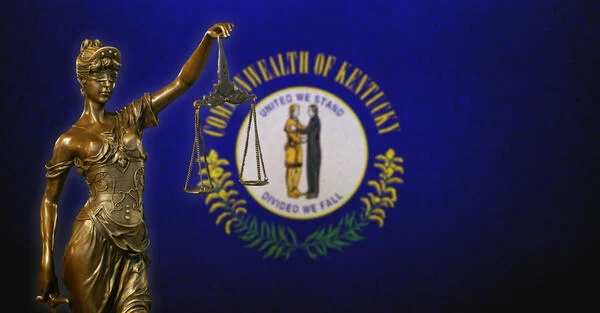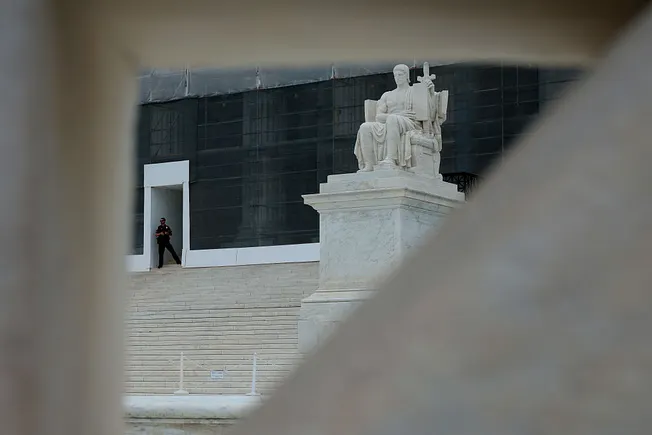Months after individual researchers, advocacy groups and a coalition of Democratic state attorneys general filed two lawsuits against the National Institutes of Health for terminating hundreds of active research grants misaligned with the Trump administration’s ideologies, some scientists are hopeful that the agency will soon restore the grants and allow them to resume their research.
Last week, a federal judge in Massachusetts ordered the NIH to restore the roughly 900 grants named in the lawsuits, including many focused on studying vaccine hesitancy, LGBTQ+ health and diversity, equity and inclusion in the medical field. U.S. District Judge William Young, who was appointed by President Ronald Reagan, ruled the terminations void and unlawful, stating during a hearing that in all his years on the bench he’d “never seen” discrimination by the government to this extent.
Although Science reported Thursday morning that the NIH has internally communicated plans to restore those grants “as soon as practicable”—and also cease further grant terminations—researchers say they still don’t know when they can expect to get the money they were promised.
“Since the ruling, we are really encouraged,” said Heidi Moseson, a plaintiff in one of the cases and a senior researcher at Ibis Reproductive Health. “But we haven’t heard anything from the NIH about our grants being reinstated, and we don’t have a window into what that process looks like.”
Back in March, Moseson received a letter from the agency terminating her grant, which was aimed at improving the accuracy of data collected in sexual and reproductive health research for all people, including those who identify as transgender and gender diverse. The award “no longer effectuates agency priorities,” the letter said. “Research programs based on gender identity are often unscientific, have little identifiable return on investment, and do nothing to enhance the health of many Americans.”
The NIH did not respond to Inside Higher Ed’s request for comment on its specific plans for restoring the terminated grants.
Appeal Anxiety
Moseson said each week that goes by with the grant on pause “is another week where people are not being appropriately screened into clinical care and research that would be relevant for their bodies, leading to missed preventative care or, conversely, unnecessary preventive care.”
While her team is ready to resume their research as soon as the NIH restores the funding in accordance with the judge’s ruling, she’s bracing for further disruptions ahead, depending on what happens with the appeals process.
On Monday, the NIH filed a notice of appeal with the U.S. Court of Appeals for the First Circuit. It also filed a motion to stay the judge’s order to restore the grants while pending the appeal, but Young denied that motion on Tuesday, noting that a stay “would cause irreparable harm to the plaintiffs.”
“This is a case in equity concerning health research already bought and paid for by the Congress of the United States through funds appropriated for expenditure and properly allocated during this fiscal year,” the judge wrote. “Even a day’s delay further destroys the unmistakable legislative purpose from its accomplishment.”
The following day, Michelle Bulls, a senior NIH official who oversees extramural funding, told staffers in an email that the agency must restore funding for the hundreds of projects identified by the plaintiffs, Science reported. “Please proceed with taking action on this request as part of the first phase of our compliance with the court’s judgment,” Bulls wrote, noting that “additional information is forthcoming.”
Noam Ross, executive director at rOpenSci, a nonprofit that supports reproducible open research, and co-founder of the website Grant Watch, which is tracking grant terminations, put out a call for information on LinkedIn Wednesday about any grants the NIH has restored. But he told Inside Higher Ed Thursday afternoon that he has yet to receive any verified reports of restored NIH grants.
Shalini Goel Agarwal, counsel for Protect Democracy, a nonprofit focused on combating perceived authoritarian threats, and one of the lawyers representing the plaintiffs, said Thursday morning that she also had not yet heard of any researchers getting grant money the NIH previously terminated.
Though it’s not clear what could come of the government’s effort to appeal Young’s ruling, “at this moment the judge’s order is in effect and the NIH should be returning money to the researchers whose grants were terminated,” she said. “NIH should right now be undoing the effects of its directives.”
‘Cautiously Optimistic’
Katie Edwards, a social work professor at the University of Michigan and a plaintiff in one of the cases, said that as of Thursday afternoon, she had yet to receive any communication from the NIH about its plans to restore her numerous multiyear grants.
Edwards, whose research focuses on Indigenous and LGBTQ+ youth, said that delaying the grants much longer will undermine the research she’s already started, to the detriment of public health research.
“For some of our studies, it’s just a matter of weeks before they’ll be really hard if not impossible to restart. I’m feeling a lot of anxiety,” she said. “We’re in a waiting phase, but I’m trying to be cautiously optimistic.”
Despite the uncertainty of what’s ahead, she did get some reassuring news from the NIH on Thursday. The agency notified her that it approved her bid for a new three-year, $710,000 grant to develop and evaluate a self-defense program for adult women survivors of sexual violence. Like many other applications for new grants, the application had been in limbo for months. “So something (good??) is going on there!” she said in an email.
Other cases moving through the courts also look promising for federally funded researchers eager to get their grants restored.
On Monday, U.S. District Court Judge Rita Lin ruled that the Environmental Protection Agency, the National Science Foundation and the National Endowment for the Humanities had also unlawfully terminated grants that had already been awarded to researchers in the University of California’s 10-campus system. The judge, a Biden appointee, ordered the government to restore them, adding that she is weighing extending the order to 13 other federal agencies, including the NIH.
“Many of the cases that are making their way through the courts share claims that are being made about the illegality of the federal government’s actions,” said Olga Akselrod, counsel for the American Civil Liberties Union and a lawyer representing the plaintiffs in one of the suits against the NIH. “Any time we have a win in one of these cases it’s an important statement of the applicable law, and that’s relevant for all of the cases that are proceeding.”










